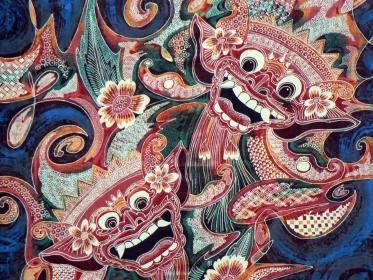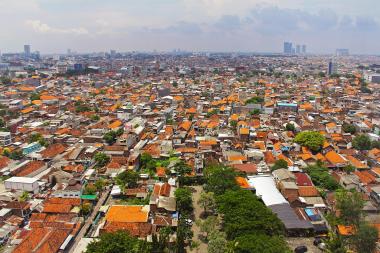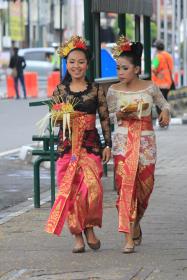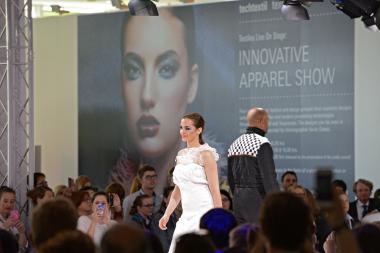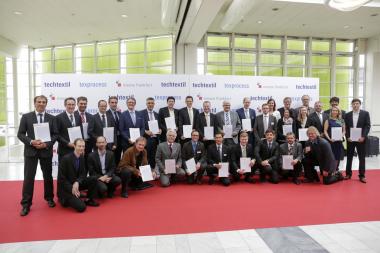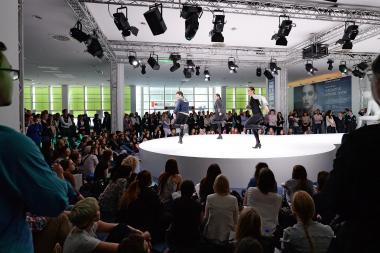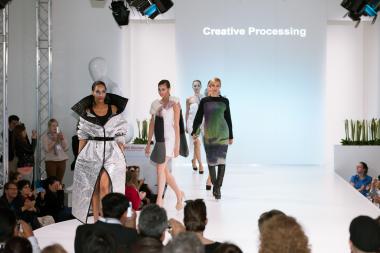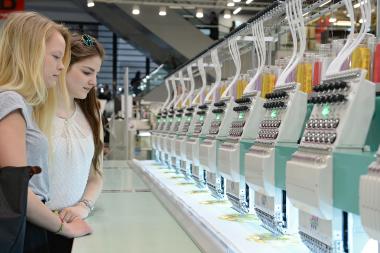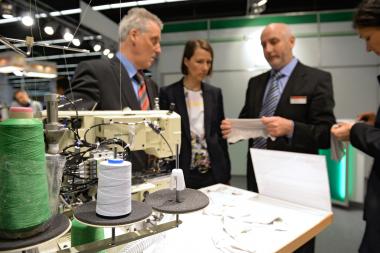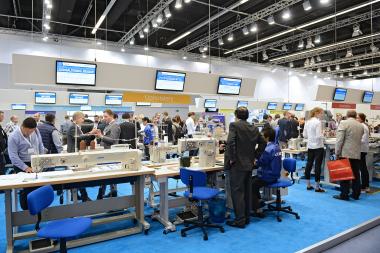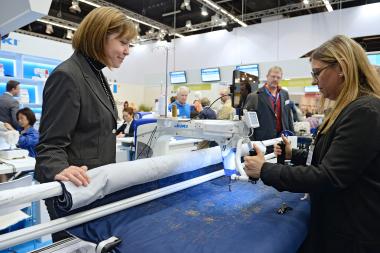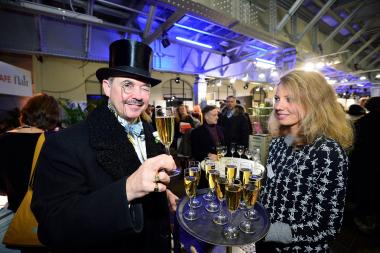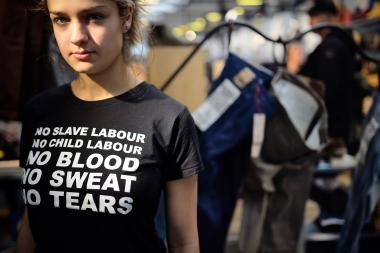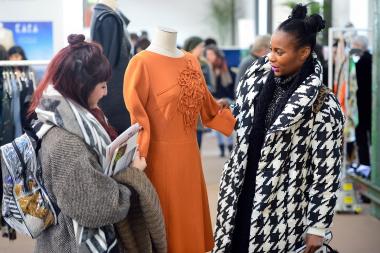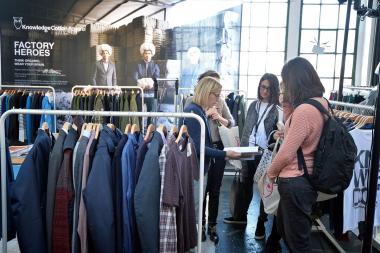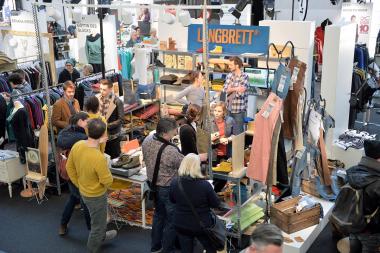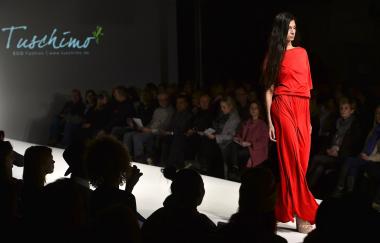IN INDONESIA DEMAND FOR TEXTILE MACHINERY STAGNATING
- Clothing exports stagnate
- Shoe production becomes more important
- Investment in modern technology necessary
Bonn (GTAI) - The Indonesian textile industry faces strong regional competition. Since their demand for machinery and clothing exports peaked about five years ago, the industry's exports have stagnated. Nevertheless, the archipelago is important for international market participants at least as a second location alongside the major producing countries. In the meantime, the country has developed into an important shoe manufacturer and is further expanding its production capacities.
Indonesia is one of the top 15 clothing exporters. Over the past decades, the archipelago has continuously increased its production and thus created a growing demand for textile machinery. But the market has been stagnating for five years: exports are at around USD 7.5 billion per year, and imports of textile machinery have fallen from USD 1 billion per year to only around 800 million US dollars.
The most important supplier of textile machinery is the PR China, which has expanded its import share to around 30 percent in recent years and displaced Japan from first place. According to Indonesian import statistics, the German delivery ratio fluctuates by 10 percent.
The Indonesian textile association API cites the lower demand for clothing, especially from the USA and Europe, as the reason for the weak export development. About half of industry exports goes to North America. The largest customers are Japan, Germany, South Korea and the United Kingdom. What the association does not say: Bangladesh, Vietnam, India, Cambodia and Myanmar have all significantly increased their clothing exports in the past five years.
| 2007 | 360.5 |
| 2008 | 580.9 |
| 2009 | 339.9 |
| 2010 | 641.1 |
| 2011 | 952.1 |
| 2012 | 1.021.7 |
| 2013 | 973.8 |
| 2014 | 940.2 |
| 2015 | 804.3 |
| 2016 | 822.9 |
*) SITC 724
Source: UN Comtrade
Shorter production cycles
Indonesia's textile companies must therefore invest in order to remain competitive. Even though, according to API, more than half of the member companies are already technologically advanced, many market participants still have an outdated machinery. And especially against the background of fiercer competitive conditions, this is a decisive disadvantage. According to the association, larger fashion chains insist on ever shorter delivery times. Where the producers used to have three months, today it is only three weeks.
Regional competition is also a problem for manufacturers. The archipelago has good conditions for a labor-intensive industry such as the textile industry. Wages are low - outside the conurbations - and the labor supply is inexhaustible (also because many men work as sewers in the factories). Nevertheless, the country has not yet managed to become serious competition for the main export countries of cheap mass-produced goods.
| 2014 | 2015 | 2016 | Change | |
| PR China | 279.4 | 269.2 | 524.7 | -5.4 |
| Taiwan | 79.7 | 86.8 | 98.3 | 13.2 |
| Germany | 104.5 | 68.4 | 93.6 | 36.8 |
| Japan | 163.7 | 91.3 | 85.1 | -6.8 |
| Korean Rep. | 60.5 | 65.8 | 57.0 | -13.4 |
| India | 48.3 | 43.1 | 42.6 | -1.2 |
| Singapur | 37.1 | 33.4 | 41.3 | 23.7 |
| Italy | 47.1 | 39.1 | 36.3 | -7.2 |
*) SITC 724
Source: UN Comtrade
The archipelago also has locational disadvantages: it is further away from the European sales markets than other manufacturing countries and has a greater distance to China also, which, due to the high wage increases, is increasingly relocating its clothing production to its immediate neighbors. Moreover, in Indonesia, which is comparatively wealthy due to its large raw material exports, the minimum wages of India, Cambodia, Bangladesh or Myanmar cannot be undercut.
| 2011 | 2016 | Change | |
| PR China | 153.7 | 158.2 | 2.9 |
| Bangladesh | 19.2 | 29.5** | 53.6 |
| Vietnam | 13.1 | 22.9** | 74.8 |
| India | 14.7 | 17.9 | 21.8 |
| Indonesia | 8.0 | 7.5 | -7.1 |
| Cambodia | 4.0 | 6.6** | 65.0 |
1) SITC 84; 2) Mirror statistics of partner countries
Source: UN Comtrade
Investments at previous year's level
After all, Indonesia has managed to become an important second location for international apparel companies, mitigating risks in major manufacturing countries. Most of the manufacturers are located in populous Java. For the government, further expansion of the industry is important in order to bring the large number of unskilled workers to work.
According to the latest available data from the Federal Statistical Office (BPS), the number of employees in the roughly 2,600 medium and large companies in the sector has increased from 470,000 (2008) to 550,000 (2014). In addition, there are just under 210,000 workers in small and micro companies (2015), most of whom are one- or two-person businesses.
The BKPM investment agency reports FDI of USD 184 million for the first half of 2017 for 494 projects. This corresponds almost exactly to the sum of the same period of the previous year. For the full year of 2016, USD 321 million of FDI had flowed into the sector.
Shoe manufacturers expand capacities
The domestic footwear industry is developing far more dynamically than the textile industry. Indonesia has become the third most important exporter in terms of cheap mass production in a few years, but it is far behind China and Vietnam. After all, the corresponding exports between 2011 and 2016 have steadily increased from USD 3.3 billion to USD 4.6 billion.
| 2011 | 2016 | Change | |
| PR China | 41.7 | 47.2 | 13.1 |
| Vietnam | 6.7 | 13.0** | 93.5 |
| Indonesia | 3.3 | 4.6 | 40.5 |
| India | 2.1 | 2.7 | 31.4 |
1) SITC 82; 2) General Statistics Office of Vietnam
Source: UN Comtrade
And the signs are still on expansion: In the first six months of 2017, the leather and footwear sector had FDI of USD 187 million, a third more than in the total year 2016. Domestic market participants are also expanding. The Indonesian manufacturer SCI is currently building a new production facility in the central Javanese Salatiga, near the port city of Semarang. It should be completed in October. In the first phase 300,000 to 500,000 pairs of shoes per year could be produced, the maximum capacity is 1 million pairs.
Frank Malerius, Germany Trade & Invest www.gtai.de


